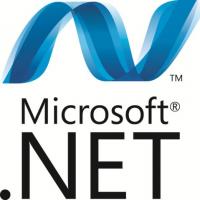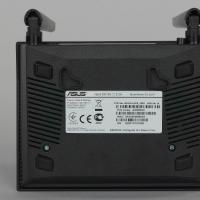Profession: Programmer, system administrator. From Linux admin to Python programmer or how and why I changed my profession Who to become a web developer or system administrator
Hello friends! Today we’ll talk about such a profession as a system administrator. Since our century is the century of technological progress. The Machine Age. It is impossible to imagine even the most seedy company without a computer! The director of the enterprise, in the accounting department, in the offices of department heads, and even ordinary employees - everyone has computers at their workplaces.
Corporate mail, news, market, bank - all these benefits of the modern workforce undoubtedly help to survive in the cruel world of business. But how do you make it all work together? How to make sure that employees do not sit “in contact” and “classmates” during working hours, but do business? How to protect secret information from your work computer from hackers? This is why such a profession as sysadmin exists.
If you ask Google who he is, he will answer something like this:
System administrator is an employee whose job responsibilities involve ensuring the normal operation of the fleet of computer equipment, networks and software, as well as ensuring information security in the organization.
Popularly, such a specialist is simply called “administrator” or “sysadmin”.
So let's figure it out...
What is he doing
The responsibilities of the system administrator include ensuring the stable operation of computer equipment.
This stage includes:
- installation and configuration (and sometimes even purchase) of computers,
- components and peripheral devices(printers, scanners, etc.)
When doing this, the main thing is to lay out computer communications so that even the most sophisticated worker does not pull out the plug with his foot and spill the coffee. system unit.
The most difficult part of the job is to explain to the boss’s beautiful blonde secretary that there is no need to pin the mouse wire with the buttons to the table, even if it gets in the way)))
- Setting up programs and ensuring their stable, reliable operation will be, perhaps, the most labor-intensive part of the job. The software can be completely different, depending on the specifics of the enterprise. For example, from the usual Microsoft word & excel, to the ORACLE DBMS and accounting programs.
The main problem in the operation of software is, unfortunately, the human factor, since usually employees’ complaints to the system administrator begin with the words: “I pressed the wrong button and everything suddenly disappeared somewhere.” Synchronizing the work of programs and setting up the correct protection “from fools” is, consider, half the work system administrator.
- The system administrator must also know and be able to correctly configure access parameters so that each employee can turn on only his computer, his profile, and launch only those programs to which he has access according to his status in the campaign. If the employees’ work is connected to the Internet, then the system administrator will have to configure access parameters to the World Wide Web so that neither “in contact” nor so-loved office workers“Odnoklassniki” was not accessible from work computers.

A system administrator is a very significant figure in a company, like a knight on a chessboard. It seems like he’s not the most important person, but it’s absolutely impossible to live without him. Sometimes it is enough to complete admin courses to become the master of office computers. But computers tend to break down, both for an ordinary employee and for the general director.
You can learn more about what a sysadmin does by watching the video.
Pros of the profession
The incomparable advantages of the work include almost complete independence, because finding a person at the company who will understand computers at the level of a system administrator and will check your work is almost impossible. It is the system administrator who is the “virtual director” in the campaign, therefore, having correctly configured the equipment and given valuable instructions to the “office plankton”, you can safely spend the gray days of work, indulging in social networks or absorbing modern youth online games. In addition, solving problems with technology of superiors and senior management (top manager, chief accountant, personnel officers, etc.) will provide good connections and help in career advancement.
Representatives of this profession, again, have an order of magnitude less paperwork than other workers. As practice shows, while at the end of the month or year, department heads and subordinates are intensively writing reports, settling accounts and summing up results, system administrators are spinning twisted-pair soldiers in their offices.

The obvious advantages include the salary of system administrators. According to the website “job.ru”, companies are willing to pay an average of $1,200 to $3,000 for services of this kind.
The disadvantages (cons) of the profession include:
- Uneven and sometimes high workload. Through the efforts of careless users, computers glitch and break down with enviable regularity in almost any enterprise.
- Lack of understanding and sometimes absolute unwillingness to understand at all how the system works. The mouse is buggy - the system administrator is to blame. The site does not work - the system administrator is to blame. The power supply has burned out - the system administrator is to blame. And go and prove that the voltage in the electrical network does not depend on you!
- Limited opportunities for career advancement. If the company’s activities are not related to the provision of services in the field of information technology, then there is nothing more to count on except for an increase in salary.
Characteristic
What qualities do a good system administrator need?
- Firstly, he must have a good technical education. Knowing what is a system unit, what is a monitor, and how to reinstall the operating system will clearly not be enough.
- Secondly, a good system administrator must speak English at a level clearly superior to basic.
Most programs and especially technical description they are supplied in English and gaps in language knowledge can be expensive, and in a reputable company there is nothing to do without knowledge of a foreign language.
- And, finally, thirdly, communication skills and the ability to find an approach to work colleagues will provide the system administrator with not only additional cookies for coffee, but sometimes also a good bonus.
If you are used to working independently, speak good English and know how to approach people, this job is for you. Yes and wages will allow you to provide not only for yourself, but also to please your family, and in our information society a person with this kind of profession will never be left without work.
Best regards, Alexey!
Responsibilities of a system administrator.
To perform the functions assigned to him, the system administrator performs the following responsibilities:1. Planning of information infrastructure, internal network structure.
2. Organize and ensure uninterrupted functioning of the local computer network. Monitoring the use of local area network.
3. Installation of network software on servers and workstations, configuration of systems and software on servers.
4. Provides protection against unauthorized access to information, viewing or modification system files and data, as well as internet security.
5. Organization of access to local and global networks, including the Internet; exchange of information with other organizations using email.
6. Registration of users, assignment of identifiers (logins) and passwords.
7. Maintaining the operating status of server software.
8. Support for the operation of a corporate web server and internal web servers.
9. Installation and configuration of network services. Keeping them in working order.
10. Setting up a security system, planning a general security policy.
11. Training and consulting users when working on a local computer network, the Internet, using e-mail, maintaining archives.
12. Downloading and subsequent installation of server updates operating systems and software.
13. Logging of system and network events, resource access events - for subsequent analysis.
14. Virus protection. Updating anti-virus databases.
15. Development of instructions for working with network software and providing them to users.
16. Setting restrictions for users on: use workstation or servers; time; degree of resource use.
17. Creates a data archiving plan. Installation and configuration of system software backup. Saving data on removable media.
18. Configuring notifications about critical events. Installation and configuration of monitoring software. Identifying bottlenecks, responding to critical events and hacker attacks.
19. Maintaining a log of data archiving and the degree of media usage.
20. Development of a scheme for post-accident recovery of a local computer network.
21. Conducting test checks and preventive inspections of computer equipment in order to timely detection and troubleshooting.
22. Drawing up an application for the repair of faulty equipment, as well as the purchase of new and modernization of outdated hardware equipment for servers and workstations, as well as network equipment.
We often encounter that people do not understand the difference between a system administrator and a programmer and all IT workers are called programmers. Some are offended, while others have already gotten used to it. But I want to try to clarify this difference so that it is clear to most who read this article :)
If an organization has an IT department (engineering), or, more simply, a computer department, then it has the following division:
- the main task is to control the operation of servers and server software, the administration of telephone exchanges, security policy - in general, these are the brains of the entire computer structure of the organization.
Specialists (or engineers) technical support - these are the guys who are engaged regular computers users, configure them, help users solve current problems, catch viruses on users’ computers, etc. etc. In essence, a Specialist is a future system administrator, because a system administrator can also perform the work of a specialist. A specialist can perform the work of a system administrator if management allows him - management has more confidence in a system administrator :)
Programmers- these are the guys who constantly write various texts in a language that is incomprehensible to the average user. These texts then turn into useful programs, utilities, or simply modules (additional options) for useful programs.
To make it easier to understand, I will give an example of the difference between a system administrator and a programmer. The programmer wrote a program, which he later called, for example, Windows, and the system administrator configured it (using the functions that the programmer provided in his program) for the user.
Today I want to touch on the problem of choosing professions and talk about one of them. I think everyone has faced this issue and found a solution that suits them. Some followed the lead of their parents, some were guided by their own, and some never found their calling. I would like to talk about such a profession as a programmer.
I think everyone knows that these are people who sit at the computer all day long and write something there. But why does everyone pester them with all sorts of stupid questions like: “Aren’t you going to look my computer? For some reason it froze!" Who came up with this stereotype that a programmer and a system administrator are one and the same? These are two different professions!!! The programmer writes programs for you in special languages, and the system administrator (commonly known as a system administrator) understands why and why they hang. A system administrator also repairs computers, which, in principle, a programmer should not do, although he must know how the computer works.
Where do they study to become a programmer and system administrator (sysadmin)?
Promising technical education for working with databases and networks can be obtained at almost every technical university. Programmers and developers are trained in the specialty " Software computer technology and automated systems", "Applied Informatics and Mathematics", system administrators - in the process of training in the specialty " Computers, complexes, systems and networks”, information security specialists - in universities where there is a specialty “Organization and technology of information security”.
For your information, I will list the leading universities in Moscow in the specified specialties:
MIPT (SU). Moscow Institute of Physics and Technology (State University) National Research Nuclear University "MEPhI". National Research Nuclear University "MEPhI" MSTU named after. Bauman. Moscow State Technical University named after. N.E. Bauman MGIET (TU). Moscow State Institute of Electronic Technology (Technical University) MSU. M.V. Lomonosov. Moscow State University named after. M.V. Lomonosov
This list of universities can be continued for a long time. Only the faculty of “Informatics and Computer Science” is in the 41st university.
The exams that need to be passed to enter this profession are as follows: Russian language Mathematics Computer science/Physics Possibly English language.
The most important thing is to do well in mathematics and computer science/physics. These are technical universities after all! But for every institution there are exceptions. To do this you need to search for a very long time on the Internet and figure it out, but it’s best to choose several universities for yourself and go there for Open Day doors. There you can talk to rectors and students, and find out everything.
But, it seems to me, in order to enroll and then work in this specialty, you have to love it very much study(this is the main “disadvantage” of this profession), and I really love digging into hardware.
So here are the “advantages” of this profession: 1) High wages. 2) Good knowledge of TECHNICAL English language. 3) High and highly developed intelligence. "Disadvantages": 1) Great strain on the eyes, because all day at the computer. 2) Completeness, because This is a sedentary profession. 3) Loneliness. Why? Because you sit alone in a closed room all day. This profession is suitable for those people who are more comfortable in life being alone. 4) You constantly need to learn new languages or new components, because... Almost every year an improved version of programming languages is released. 5) By the age of 35-40, this profession gets boring...
I talked to many acquaintances who work in this specialty, and they all unanimously insist that they are tired and bored. And it’s terrible when your favorite job starts to get boring! And they also say that there is no place in this profession women. What nonsense? There are no worse female programmers men, but they are not hired for this position. It’s very difficult for girls to break through... I think everyone understands why this is so.
This profession is very interesting and promising, but few people manage to achieve something good in it, because you need to be completely cut off from home, family and immerse yourself in work. Few people can agree to this. And this is another “minus” of this work.
I myself am torn between it and the profession of a journalist, which will be discussed in the next article.



